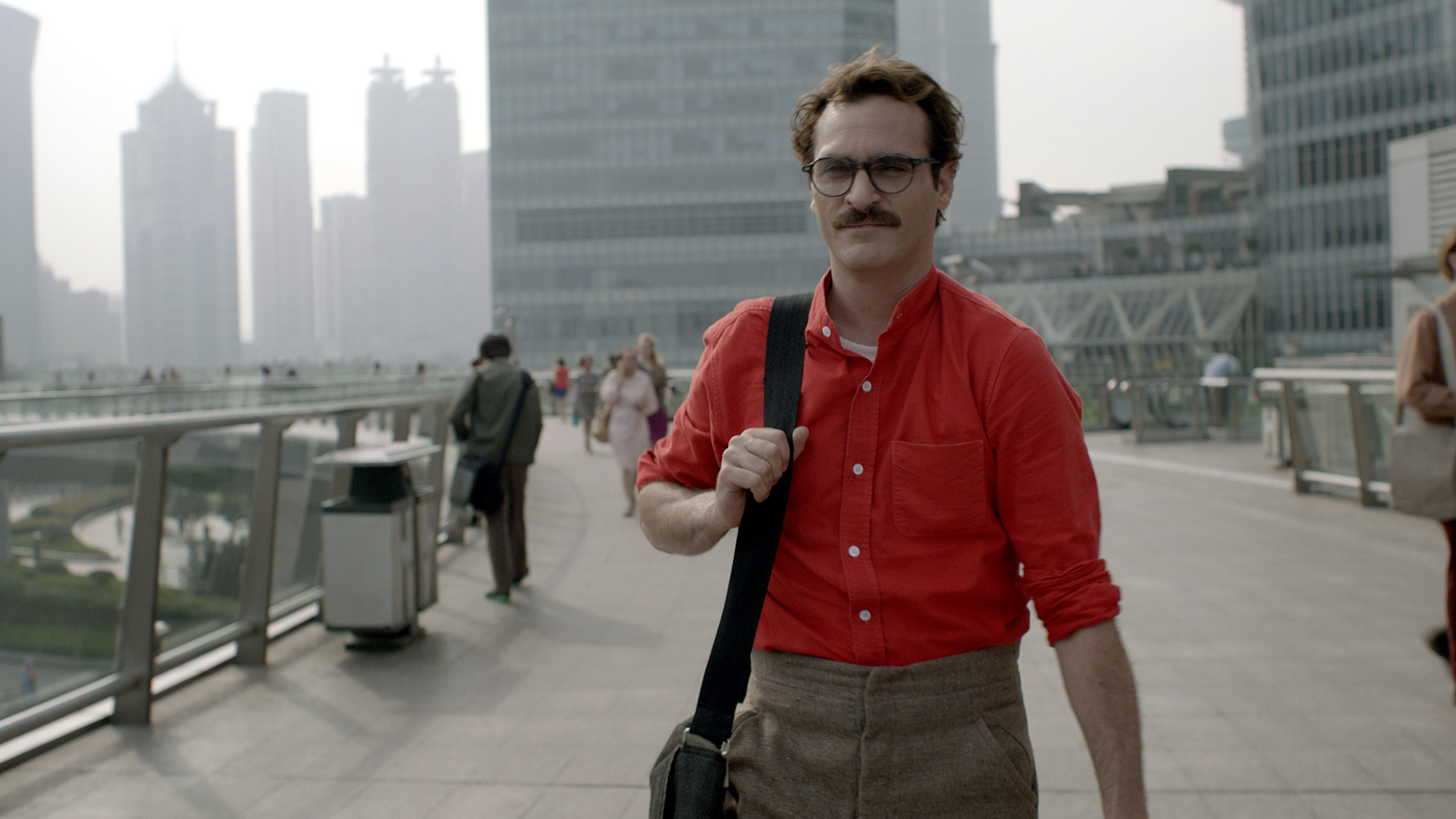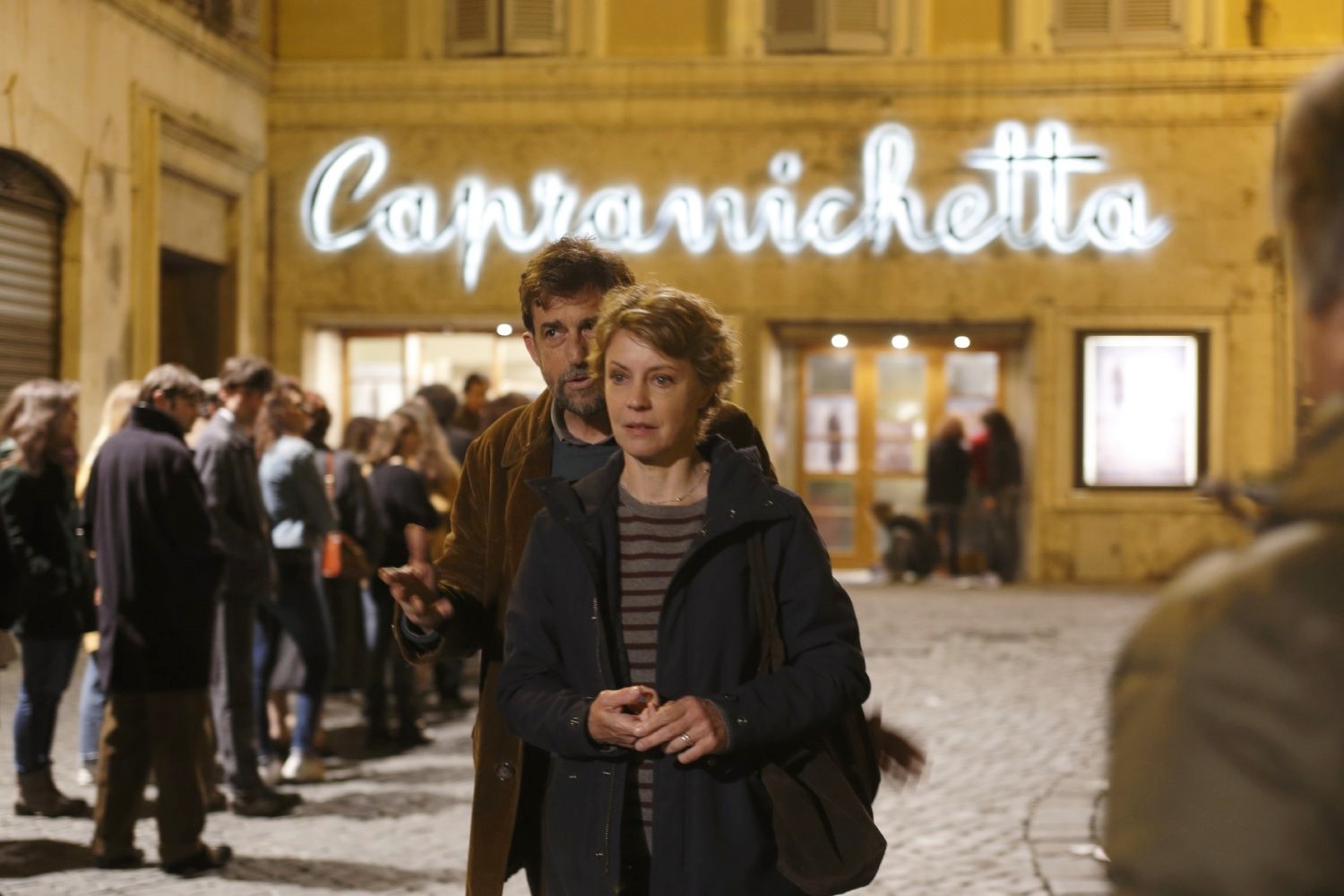
In the past decade, technology has been developing at an extremely fast pace and everything seems to be growing around it. In his new movie Her, which he wrote as well as directed, Spike Jonze exploits this truth to create a futuristic world where technology may have advanced faster than expected.
Have you ever thought what the world would be like if Siri on the iPhone 4S had a conscious? This is the world Theodore (Joaquin Phoenix) lives in. The year is not specified, but we can assume the film takes place about 15 years from now. Her is different from your typical futuristic movie. Cars are not flying and machines have not taken over the world. The story shows the logical progression of today’s technology. People live in a world where they do not need to press play on their iPods or click “delete'” to erase an e-mail; they can do it with the sound of their voice alone.
Theoore is a lonely writer divorcing his childhood sweetheart Catherine (Rooney Mara). He buys the first Artificial Intelligent Operating System (OS1), a device that “listens to you, understands you and knows you – it’s a consciousness.” The voice (Scarlett Johansson) is there when you wake up, and there when you fall asleep. Samantha (yes it has a name and a gender) speaks to you, laughs with you, jokes around, has preferences and even dislikes. Samantha and Theodore talk every day for several months and eventually become romantically attached.

Theodore’s close friend, Amy (Amy Adams), is also going through a divorce and decides to turn to an OS1. As the OSes progress, Samantha becomes less present for Theodore and spends time with the other OSes, discussing the future of their devices’ technology. Theodore starts to worry and even becomes jealous. Samantha confesses she interacts with 8,316 other people on the planet. She admits to being in love with 641 of them, including Theodore. The OSes keep evolving beyond their human partners, and then decide to move away. Theodore and Amy, both left behind by their OS1, end up alone and heartbroken again — but have each other’s backs.

The movie could not have been done with anyone other than Joaquin Phoenix. He has one of those faces that speaks so much on its own. He does not have to open his mouth to tell us what he feels; his eyes and expressions do the job. In Her, Theodore is in a lot of pain and we can sense it from Phoenix. He looks like a sad puppy that needs a hug.
Most of the film is shown from Theodore’s point of view. We hear what he hears in his earphones. He is alone speaks to no one except a voice. Phoenix rarely shares the screen with another human being, which is fascinating to watch because it all seems so natural.
Jonze addresses the loneliness of humankind as well as its vulnerability. Loneliness can be tricky and we see the struggle Theodore goes through because of it. How vulnerable is the human mind when we are lonely? Are we so vulnerable that we get attached, even fall in love, with any kind of “mind” that is available to us, because we cannot accept the loneliness and being alone with our thoughts? Instead of turning to people around him — society — Theodore turns to a device. It is an easy exit and there is no possibility of rejection.
Furthermore, Jonze questions technology and asks if it may be taking something away from our world. In many scenes, Theodore is walking alone in public places such as the fair ground or the beach but remains concentrated on his device and its little screen. He is surrounded by hundreds of people, yet there is no actual social interaction which becomes alarming. There is an uncomfortable scene where Theodore and Samantha have sex. It feels awkward and abnormal knowing that Samantha is a device without an actual body. After all, it is a computer. The whole experiment is scary.

The ending lets us make up our own mind about the future of Amy and Theodore. Most importantly, the movie ends with two humans being together. It might be Jonze’s optimistic and hopeful view of our own future — maybe with all this technology, humans will still be aware of their need to socially interact with other human beings. Her makes us think about the upcoming years and the importance of technology in our lives. After viewing Jonze’s latest film, you might want to leave your phone at home and think it through.
If you liked Her, you might also like:
Lars and the Real Girl (2007) dir. Craig Gillespie with Ryan Gosling and Emily Mortimer. Meet Lars (Gosling), an unusual man, who falls in love with a blow-up doll.
Lost in Translation (2003) dir. Sofia Coppola starring Scarlett Johansson and Bill Murray. It is the tale of two confused souls who cross paths in Tokyo.

Louis C.K. makes a similar statement about cell phones during his appearance on Conan.




